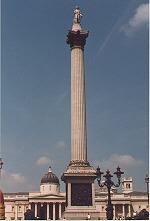
Nelson's Column
Charlie Nelson's Blog
How the Australian Labor Party snatched defeat from the jaws of victory
After the Australian Labor Party (ALP) lost its majority in the August 2010 federal election, their leader, Julia Gillard, borrowed some words from Bill Clinton, saying that the people have spoken but that it would take a little while to determine exactly what they said.
It is obvious what they said – that neither major party is considered fit to govern by the majority of voters. The election campaign was completely lacking in vision and policies. It descended into either pork-barreling or dog-whistle politics to win support from voters in particular seats. Most people did not agree with this and had no substantial basis to choose between the parties. The result is minority government which is likely to be unstable. It is not an environment which fosters the long-term vision and policy development that the country so badly needs.
And yet in September 2009, the ALP had an unassailable lead in the opinion polls. How did they snatch defeat from the jaws of victory? Much can be learned by analyzing voting intention polls over the past twelve months.

Based on Nielsen polls published by The Age and Sydney Morning Herald, the ALP’s vote started falling between late 2009 and early 2010. It continued to fall until June 2010, prompting the dumping of Kevin Rudd in favour of Julia Gillard. There was some recovery, but the small lead as measured by the polls in August evaporated by election day on 21 August.
The ALP’s vote held up well amongst people aged 18 to 24 throughout this period, but this the smallest of the four age groups reported by Nielsen (12.7% of the 18+ population).
The ALP’s vote amongst people aged 25 to 39 (27.5% of the 18+ population) fell before other age groups, in late 2009. This appears to have been due to Rudd’s statement in favour of a big Australia and/or the re-emergence of the issue of asylum seekers arriving by boat. This age group swung back to the ALP when Gillard replaced Rudd and said she did not support a big Australia policy. This age group’s voting intentions swung quite wildly after Gillard came to power.
ALP support amongst the 40 to 54 year age group (27.0% of the 18+ population) had declined by February 2010 and this loss was never recovered. This was possibly associated with Tony Abbott replacing Malcolm Turnbull as opposition leader.
The 55+ age group is the largest of the four age groups (32.8% of the 18+ population and growing). In late 2009 and early 2010, the ALP was favoured by an average of 49%. But this support dropped substantially when Abbott replaced Turnbull. There was some recovery when Gillard replaced Rudd, but support dropped again when a leak suggested that Gillard had opposed an increase in the age pension in a cabinet meeting. She is reported to have said “old people don’t vote Labor”. Many more certainly did not after that leak.
There are at least four issues for the ALP to come to grips with if they are to win the next federal election, which could come at any time given their reliance on one Green and four independents – a loss of support from any one of these would be fatal.
First, they must have a credible sustainable population policy. Most Australians do not favour a much larger population.
Second, a humane policy towards asylum seekers is needed, while enforcing tough penalties on people smugglers.
Third, real action on climate change is essential. Gillard’s idea of a citizens assembly was a dereliction of duty.
Fourth, and most important, the ALP has to drop its “old people don’t vote Labor” attitude and engage with this large and growing age group. The ALP won every age group under 55 in the 2001, 2004, and 2010 elections but lost because they were not attractive enough to the 55+ age group. In the lead-up to the 2007 election, after Kevin Rudd became the ALP leader, the ALP two-party preferred vote was 49.8% amongst the 55+ age group. Not a majority, but a large enough vote to not outweigh the preferences of people aged under 55. Kevin Rudd showed that sufficient older Australians will vote Labor to ensure victory.
Charlie Nelson
September 2010